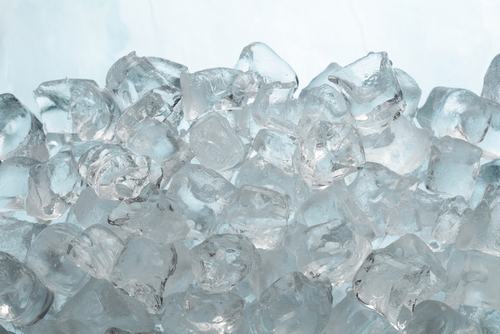Is Chewing Ice Bad For You?
Short answer
Chewing ice is not good for you by any means, but it isn't particularly harmful unless done excessively. It is also imperative that if you find yourself addicted to chewing ice you see a doctor, as it could be a sign of an underlying problem.
More harmful than beneficial. Side effects are common, especially when consumed/done excessively. Moderation is very important.
View Full Grading System
Category 'A'
Very healthy and numerous health benefits. Side effects are rare. Things rated an 'A+' are typically necessary for survival (for example, water).
Very healthy and numerous health benefits. A few harmful qualities may be associated, but only under certain circumstances such as an allergic reaction.
Very healthy and numerous health benefits. Harmful qualities may be associated, but aren't usually serious.
It is important to note that even the best things in life can become bad in immoderate amounts. So, although something may be rated an 'A+', overconsumption/overdoing can bring unwanted effects.
Category 'B'
Very beneficial to your health. Things rated a 'B+' may have a few harmful qualities to pay attention to.
Overall beneficial to your health. Things rated a 'B' may have some harmful qualities to pay attention to.
More beneficial to your health than not. However, harmful qualities are most likely associated and shouldn't be overlooked.
The main difference between category 'A' and category 'B' is the harmful qualities typically present in 'B' items. Serious side effects are usually uncommon, but are still possible and should be taken note of.
Category 'C'
Both beneficial and harmful qualities associated. Things rated a 'C+' are typically a bit more on the beneficial side. Still, moderation is important.
A fairly even ratio of beneficial and harmful qualities. Moderation is important. Very general topics that can lean towards both sides of the spectrum will be placed here as well. Rice, for example, can be good or bad depending on the type.
More harmful than beneficial. Side effects are common, especially when consumed/done excessively. Moderation is very important.
Category 'C' usually denotes to both good and bad qualities. When it comes to this category, it is important to keep this word in mind: moderation.
Category 'D'
Harmful to your health. Although benefits may be associated, the bad most likely outweighs the good. Moderation is very important.
Harmful to your health. A few benefits may be associated, but the bad outweighs the good. Moderation is extremely important.
Harmful to your health. Very few, if any, benefits are present. Things in this category should be avoided as much as possible.
Category 'D' is typically for things that are more harmful than beneficial. While consuming/doing something unhealthy once in a blue moon shouldn't hurt, we definitely recommend eliminating 'D' items as a regular part of your routine/diet.
Category 'F'
Category 'F' is for things that fail to bring anything beneficial to the table, and are very harmful to your health. We recommend completely avoiding anything in this category. Long-term side effects of 'F' items are usually very serious.
Category 'N'
'N' stands for neutral. Things placed into this category are generally (a) neither good nor bad for you, or (b) lack the necessary evidence to reach any conclusions.
Long answer
Chewing ice (known also as pagophagia) is a subset of a common medical condition known as pica, or the uncontrollable urge to eat things that have no nutritional value. On its own, chewing ice here and there is not particularly harmful. Over time, though, it can cause damage to your teeth, tongue, throat, and stomach. Some have even reported a change in their voice, however, this is only seen as a result of an ice chewing addiction.
The primary thing to be concerned about regarding ice chewing is that it is often an indicator of another problem. People who are stressed or have OCD are more prone to chewing ice. The most concerning cause of chewing ice that you should be aware of is iron deficiency anemia. Iron deficiency anemia is a condition classified as too few red blood cells due to little iron in the body. This problem affects women, especially pregnant women, far more than men. With 3% of the male population suffering from iron deficiency anemia, the rates jump to 20% of women and 50% of pregnant women. According to some researchers, chewing ice can give a boost of energy to people with iron deficiency by inducing an increased flow oxygenated blood to the brain, something that may be linked to the mammalian diving reflex.
Other problems associated with chewing ice are that it is incredibly bothersome for anyone who has to listen to it and may signal other nutritional deficiencies. It is highly advisable that anyone who is a chronic ice chewer or has an addiction to chewing ice see a doctor as it can be a sign of a more serious underlying problem.
Possible short-term side effects
Possible long-term side effects
- tooth damage
-
tongue damage
-
throat damage
-
stomach damage
-
voice change (uncommon)
-
may indicate nutritional deficiency
Benefits
Please turn your Ad Blocker off to see this content. Thank you!
Thank you for your feedback!
Written by Jeff Volling
Published on: 12-28-2015
Last updated: 12-10-2016
Thank you for your feedback!
Written by Jeff Volling
Published on: 12-28-2015
Last updated: 12-10-2016


 Approved by
Approved by 














